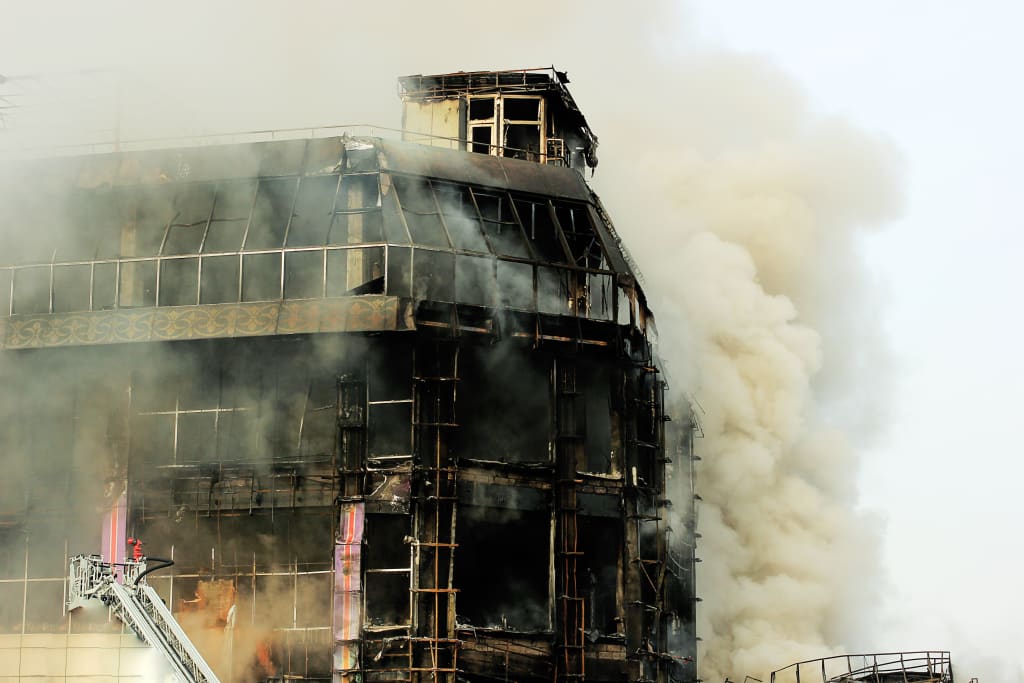Maximizing Your Fire Insurance Benefits
Tips and Tricks for Policyholders

When disaster strikes, having fire insurance can provide peace of mind for homeowners and business owners alike. But the process of filing a claim and maximizing your benefits can be overwhelming, leaving many policyholders feeling frustrated and confused. Fear not! In this blog post, we'll share some insider tips and tricks to help you navigate your fire insurance policy like a pro. From understanding your coverage options to working effectively with adjusters, we've got you covered. So, sit back, grab a cup of coffee, and let's dive in!
What is Fire Insurance?
Fire insurance is one of the most important types of insurance coverage that a policyholder can have. It provides financial protection if your home or other property is damaged or destroyed by fire. Here are some tips and tricks for maximizing your fire insurance benefits:
1. Make sure you have adequate coverage.
Don't skimp on your coverage limits just to save a few dollars on premiums. Make sure you have enough coverage to rebuild your home or replace your belongings if they are lost or damaged in a fire.
2. Review your policy regularly.
Your needs may change over time, so it's important to review your policy periodically to make sure it still meets your needs. If you've made any significant changes to your home or property, be sure to let your insurer know so that they can adjust your coverage accordingly.
3. Stay up to date on fire safety.
One of the best ways to prevent a fire from happening in the first place is to practice good fire safety habits. Keep flammable materials such as paper and gasoline away from heat sources, don't overload electrical circuits, and have smoke detectors installed and maintained in your home.
4. Know what to do if a fire does occur.
In the event of a fire, knowing what to do can mean the difference between saving your property and losing it. Be sure you know how to safely evacuate your home and contact the fire department as soon as possible.
Types of Fire Insurance Policies
There are many different types of fire insurance policies available to policyholders. The type of policy that is right for you will depend on several factors, including the value of your home, the amount of coverage you need, and your budget.
Some of the most common types of fire insurance policies include:
- Homeowners Insurance: This type of policy covers your home and personal belongings in the event of a fire. It typically includes coverage for smoke damage, replacement costs, and temporary living expenses.
- Renters Insurance: This type of policy provides coverage for your personal belongings in the event of a fire. It typically includes coverage for smoke damage and replacement costs.
- Business Insurance: This type of policy covers commercial buildings and their contents in the event of a fire. It typically includes coverage for business interruption, replacement costs, and loss of income.
Benefits of Fire Insurance for Homeowners/Property Owners
Fire insurance is one of the most important types of insurance for homeowners and property owners. A fire can destroy a home or building and cause serious injuries or even death. Fire insurance can help cover the cost of rebuilding your home or business, as well as provide coverage for your personal belongings.
There are many different types of fire insurance policies available, so it's important to choose the right one for your needs. Here are some tips to help you maximize your fire insurance benefits:
Make sure you have enough coverage. The amount of coverage you need depends on the value of your home or business and your personal belongings. It's important to make sure you have enough coverage to rebuild your property and replace your belongings.
Keep up with inflation. The cost of rebuilding a home or business can increase over time due to inflation. Make sure you review your policy regularly and adjust your coverage limits as needed to keep up with rising costs.
Know what's covered. Most fire insurance policies will cover damage caused by fire, smoke, and explosions. However, there may be some exclusions, so it's important to read your policy carefully and understand what is and isn't covered.
File a claim promptly. If you experience a fire at your home or business, contact your insurance company immediately to start the claims process. Be sure to keep all receipts and documentation related to the damage so you can provide it to the insurer.
Tips for Maximizing Fire Insurance Benefits
If you're a policyholder, it's important to know how to maximize your fire insurance benefits. Here are some tips:
- Make sure you have an up-to-date inventory of all your belongings. This will help the insurance company determine the value of your lost or damaged property.
- Keep receipts for any major purchases so you can prove their value if they're lost or destroyed in a fire.
- Store important documents like birth certificates and passports in a fireproof safe. That way, you'll be able to retrieve them if they're damaged in a fire.
- If you must evacuate your home due to a fire, make sure you take all valuables with you. Don't leave them behind!
By following these tips, you can maximize your chances of getting full compensation from your fire insurance policy.
Determining the Right Coverage for Your Property
Your home is one of your most important investments, so it's critical to have the right fire insurance coverage in place. Here are a few tips to help you determine the right coverage for your property:
Consider the value of your home and possessions. Make sure you have enough coverage to replace them if they're destroyed by a fire.
Review your policy regularly. As your home and belongings increase in value, you'll need to adjust your coverage accordingly.
Be aware of what's covered and what's not. Some policies exclude certain types of damage, such as smoke or water damage. Make sure you understand the limitations of your policy before you have a claim.
Shop around for the best rates. Fire insurance rates can vary widely from company to company, so it pays to shop around for the best deal.
Understanding Exclusions and Limitations of Fire Insurance Policies
As a rule, fire insurance policies do not cover damages caused by wildfires. This is because wildfires are "acts of God" and are therefore not covered by most insurance policies. However, there may be some exceptions to this rule depending on the specific policy in question. It is important to read through your policy carefully to understand what is and is not covered in the event of a fire.
In addition to damage caused by wildfires, most fire insurance policies also exclude coverage for damages caused by arson. This is because arson is a criminal act and is therefore not covered by most insurance policies. Again, there may be some exceptions to this rule depending on the specific policy in question.
It is also important to understand that most fire insurance policies have a limited coverage amount. This means that if the damages caused by a fire exceed the coverage limit of the policy, the policyholder will be responsible for paying the difference out of pocket. For this reason, it is important to choose a policy with a coverage limit that meets or exceeds the value of your home and belongings.
By understanding the exclusions and limitations of fire insurance policies, you can make sure that you are adequately protected in the event of a fire. If you have any questions about your specific policy, contact your insurance agent or company for more information.
Resources to Help You Make the Most of Your Policy
If your home or business has been damaged by a fire, it's important to know what resources are available to you to help you make the most of your insurance policy. Here are some tips and tricks for maximizing your fire insurance benefits:
1. Understand your policy. It's important to know exactly what is covered by your fire insurance policy. Read through your policy carefully and make sure you understand all of the details. If you have any questions, don't hesitate to ask your insurer for clarification.
2. File a claim as soon as possible. Once you've determined that you have a valid claim, file it with your insurer right away. The sooner you do, the sooner you'll start receiving benefits.
3. Gather supporting documentation. Your insurer will need documentation of the damages caused by the fire to process your claim. Be sure to gather photos, receipts, and any other paperwork that will support your claim before submitting it.
4. Keep track of expenses related to the fire. To be reimbursed for expenses related to the fire (such as temporary housing or repairs), you'll need to keep careful records of all such expenses. Keep all receipts and documentation in one place so that you can easily access it when needed.
5. Stay in communication with your insurer throughout the claims process. Once you've filed your claim, stay in touch with your insurer throughout the claims process. This will help ensure that everything is going smoothly.
Conclusion
Following these tips and tricks will help you maximize your Fire Insurance benefits when the time comes to make a claim. Fire is an unpredictable event that can cause extensive damage in a matter of moments, so it’s important to be prepared and have the right coverage in place. Remember that different policies may cover different things so it’s essential to read through your policy carefully and understand what you are covered for before making a claim. Armed with this knowledge, you can rest assured knowing that if disaster strikes, you’ll have the financial protection necessary to recover quickly from any potential losses.





Comments
There are no comments for this story
Be the first to respond and start the conversation.